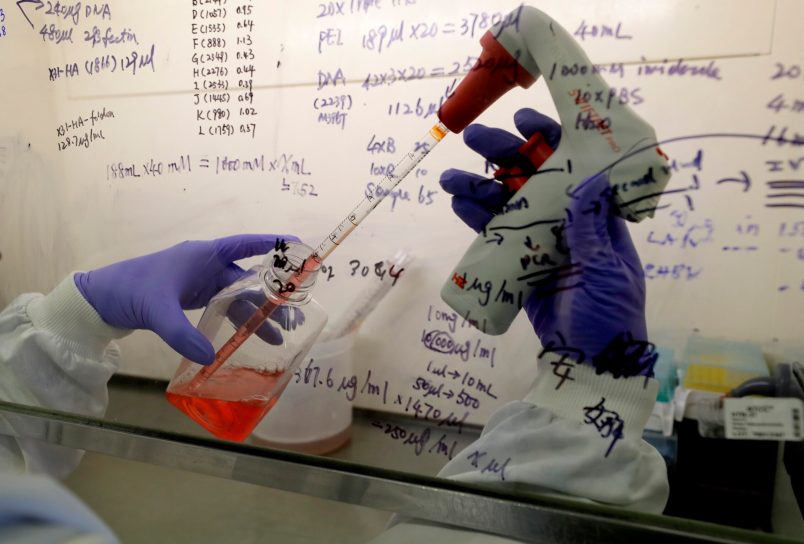Pfizer’s CEO warned against a COVID-19 vaccine being politicized in a letter to employees obtained by CNBC, after a Tuesday Presidential debate in which President Trump repeated his promise of a pre-election vaccine.
Pfizer CEO Albert Bourla said that he was “disappointed that the prevention for a deadly disease was discussed in political terms rather than scientific facts.”
Out of the three COVID-19 vaccine candidates farthest along in testing, Pfizer’s is the only one with a chance at pre-election approval. The Food and Drug Administration has put trials of AstraZeneca’s shot on hold as it investigates a bad reaction, while Moderna’s CEO said on Wednesday that the earliest the company would submit for emergency approval is late November.
Pfizer has stood apart from its competitors in its willingness to declare and repeat that its COVID-19 vaccine would gather enough trial data by late October for the company to ask the FDA for emergency approval.
President Trump has spent months pressuring the FDA to approve an early vaccine — in time for Election Day — as other parts of the government have made plans to begin initial distribution of a COVID-19 vaccine by November 1.
Despite that, Bourla suggested in his Thursday letter that both sides were to blame for politicizing the vaccine.
“In this hyper-partisan year, there are some who would like us to move more quickly and others who argue for delay,” the Pfizer CEO wrote. “Neither of those options are acceptable to me.”
Any COVID-19 vaccine, once approved, would likely go first to limited groups of people, including ER doctors, first responders, and those at high risk of serious complications. Widespread availability, experts say, likely won’t come until deep into 2021.
Bourla added in the letter that “we are moving at the speed of science” and added that “we would never succumb to political pressure.”
“The amplified political rhetoric around vaccine development, timing and political credit is undercutting public confidence,” he wrote. “I can’t predict exactly when, or even if our vaccine will be approved by the FDA for distribution to the public.”
Like the Moderna candidate, Pfizer’s vaccine requires two doses in order to be effective. Pfizer’s candidate requires a 21 day wait time between the two shots, as opposed to Moderna’s 28-day interval.
Phase III trials of the Pfizer shot began in late July. A protocol released by the company shows that 32 participants in the trial’s placebo group falling sick with COVID-19 triggers a review of the data that could serve as the basis for requesting emergency approval, compared to 53 cases for the Moderna trial.
Bourla emphasized in his letter that science was driving the company’s timeline and that it was seeking a “safe and effective” vaccine to prevent COVID-19.
The letter comes after a group of 60 prominent vaccinologists and epidemiologists wrote an open letter last week to Bourla, urging him to abide by rigorous safety standards and wait to submit for emergency FDA approval until all trial participants had received both doses.
“Given that many trial participants have not yet received their second dose, monitoring should occur through at least late November before an application for an Emergency Use Authorization should be considered by the FDA,” that letter reads.
Bourla wrote in his message that “the world will be safer if we stop talking about the vaccines’ delivery in political terms and focus instead on a rigorous independent scientific evaluation and a robust independent approval process.”






